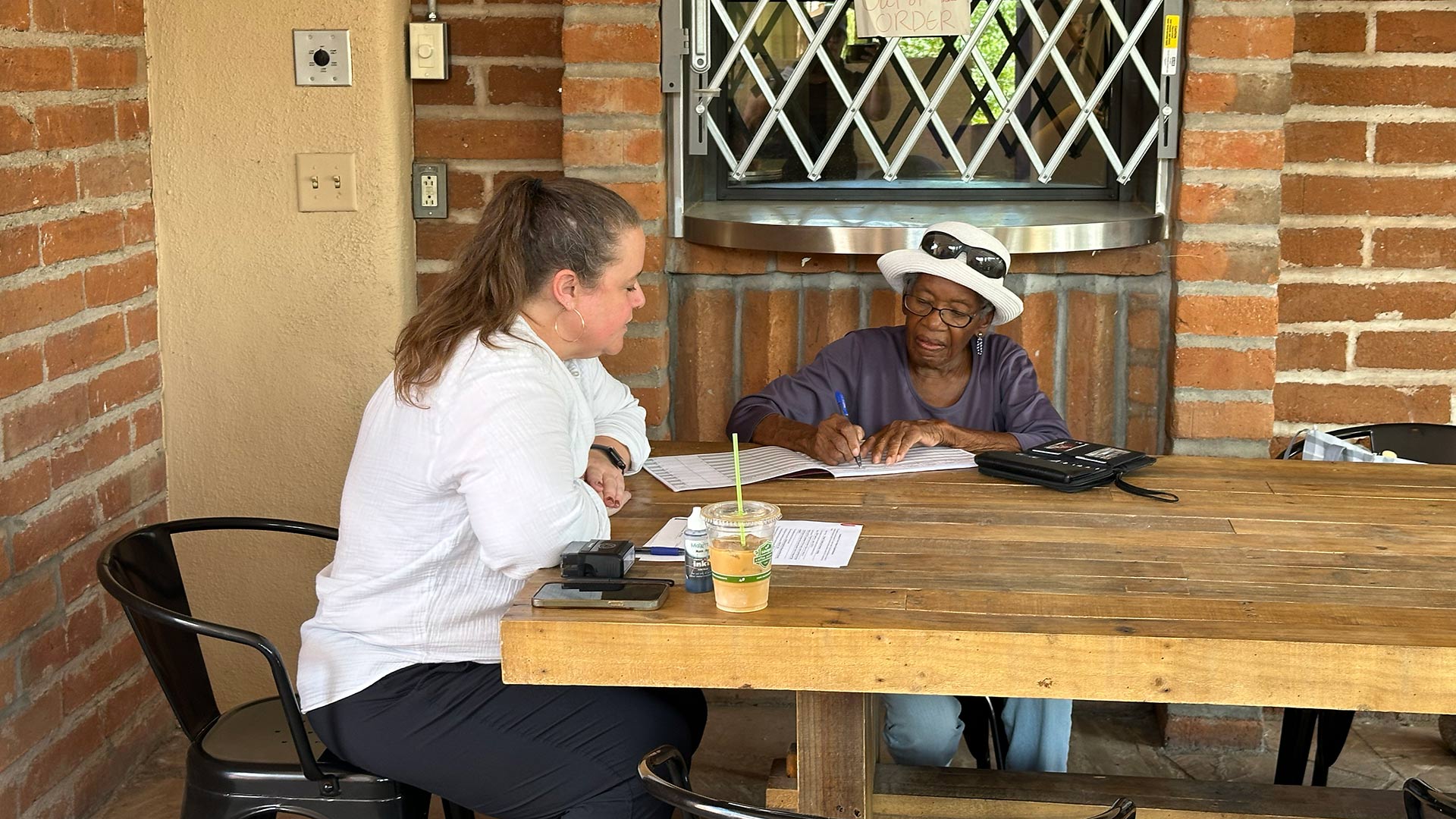 Vista Del Monte Neighborhood Association vice president Emily Ricketts signs a notarized amendment that would remove racist covenants from three out of the eight developments in her neighborhood.
Vista Del Monte Neighborhood Association vice president Emily Ricketts signs a notarized amendment that would remove racist covenants from three out of the eight developments in her neighborhood.
Vista del Monte Neighborhood Association members are amending existing covenants and restrictions to remove historic language that limited housing opportunities by race.
The president of the association, Laurel Shane, submitted paperwork to the Pima County recorder Monday afternoon to remove the language from three of the eight developments in the neighborhood.
This subdivision runs from Columbus to Swan and Grant to Fort Lowell with a small portion laid out for the San Carlos neighborhood. The restrictions were passed in 1930 and 1945, decades before the Fair Housing Act of 1968 prohibited discrimination in housing and housing-related activities based on certain protected characteristics like race.
“No part of said premises shall be sold, assigned, transferred, demised, leased, or sublet to any persons of African or Mongolian descent,” one covenant reads.
“No part of the said property shall be sold, conveyed, rented or leased in whole or in part to any person of African or Asiatic descent or to any person not of the white or Caucasion race,” another covenant says.
After volunteering with the University of Arizona’s Mapping Racist Covenants project, Shane discovered that her neighborhood was one of at least 209 subdivisions in Pima County that have these types of restrictions on the books. She says the issue hits close to home for her and her partner.
“There are neighborhoods at the time that wouldn't have allowed Jews to move in, and I'm half Jewish, and there are ones that wouldn't have allowed Mexicans to move in, and my boyfriend's Mexican. And I think about like, you know, if we had been here 90 years ago trying to find a place to live, we would have been very limited in where we could go.”
While they are unenforceable, she feels that removing them is necessary to show a change in climate and culture.
“People who try to buy in these neighborhoods still have to sign paperwork that says that they're okay with this, even though it can't be enforced,” Shane said. “I think a lot of people do not want to sign paperwork saying, ‘Yes, I'm okay with racist covenants.’ We want to make sure that people know that we have a welcoming neighborhood, and everybody who wants to buy a house should feel like they are welcome.”
Residents like Emily Ricketts, who is also the Vista Del Monte Neighborhood Association’s vice president, did not know these restrictions were still around until Shane brought it to her attention. Ricketts bought her home from her family in the 1980s in hopes of living close to her work and school for her kids. The 89-year-old woman, who lived during the height of the Civil Rights movement, believes that removing this type of language is more than just a gesture.
“To me, it makes Tucson a more welcoming, loving community for anybody,” she said “For me, it's freedom, and that's what I believe democracy is all about.”
A new state law went into effect on Friday allowing these homeowners to sign a notarized amendment that would remove such restrictions. If the change is approved, it will affect all the homes that reside within the affected developments in that area.
Today, nearly 35% of Tucsonans live in a subdivision with a racist covenant. Shane hopes that their push motivates other neighborhood associations to take that first step to enact change.

By submitting your comments, you hereby give AZPM the right to post your comments and potentially use them in any other form of media operated by this institution.